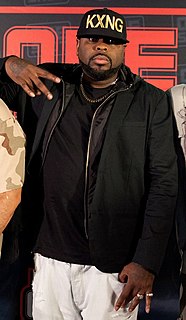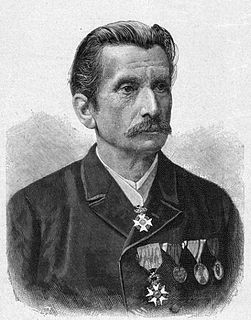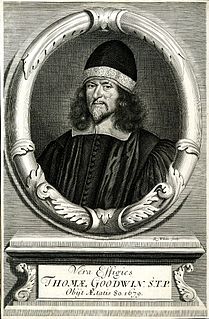A Quote by Charles Caleb Colton
Nothing is more durable than the dynasty of Doubt; for he reigns in the hearts of all his people, but gives satisfaction to none of them, and yet he is the only despot who can never die, while any of his subjects live.
Related Quotes
Somebody gotta tell you this:
Cancer kills way more Americans than any Arabic terrorist.
We use more money to fight them than finding a cure,
So a little kid sits there with his chemo-therapist.
Hair falling out while his vital signs weaken...
He'll be dead while his parent are in debt for his treatment.
I watched them carefully, as always, searching for a sign of mental weakness. But there was none. Every man was coping well with the hardship, each one of them locked into his task. But it is one thing to practice, and quite another to race. And the trouble is, you never know who, on the day, will find it within his soul to give more than he has ever given before. It takes a kind of madness to compete like that, because of the will power and the ego, and his loyalty. And while some men have it, others have yet to find it. And a coach can only use his best judgement as to who those men will be.
A man's usefulness depends on his living up to his ideals insofar as he can. It is hard to fail but it is worse never to have tried to succeed. All daring and courage, all iron endurance of misfortune, make for a finer, nobler type of manhood. Only those are fit to live who do not fear to die; and none are fit to die who have shrunk from the joy of life and the duty of life.
I have a sense that God is unfair and preferentially punishes his weak, his dumb, his fat, his lazy. I believe he takes more pleasure in his perfect creatures, and cheers them on like a brainless dad as they run roughshod over the rest of us. He gives us a need for love, and no way to get any. He gives us a desire to be liked, and personal attributes that make us utterly unlikable. Having placed his flawed and needy children in a world of exacting specifications, he deducts the difference between what we have and what we need from our hearts and our self-esteem and our mental health.
Every man gives his life for what he believes. Every woman gives her life for what she believes. Sometimes people believe in little or nothing, nevertheless they give up their lives to that little or nothing. One life is all we have, and we live it as we believe in living it, and then it's gone. But to surrender what you are, and live without belief - that's more terrible than dying - more terrible than dying young.
He leant his two elbows on his knees, and his chin on his hands and remained rapt in dumb meditation. On my inquiring the subject of his thoughts, he answered gravely 'I'm trying to settle how I shall pay Hindley back. I don't care how long I wait, if I can only do it at last. I hope he will not die before I do!' 'For shame, Heathcliff!' said I. 'It is for God to punish wicked people; we should learn to forgive.' 'No, God won’t have the satisfaction that I shall,' he returned. 'I only wish I knew the best way! Let me alone, and I'll plan it out: while I'm thinking of that I don't feel pain.
Wherein lies a poet's claim to originality? That he invents his incidents? No. That he was present when his episodes had their birth? No. That he was first to repeat them? No. None of these things has any value. He confers on them their only originality that has any value, and that is his way of telling them.
Sheep run to the slaughterhouse, silent and hopeless, but at least sheep never vote for the butcher who kills them or the people who devour them. More beastly than any beast, more sheepish than any sheep, the voter names his own executioner and chooses his own devourer, and for this precious "right" a revolution was fought.
Wherein lies a poet's claim to originality? That he invents his incidents? No. That he was present when his episodes had their birth? No. That he was first to repeat them? No. None of these things has any value. He confers on them their only originality that has any value, and that is his way of telling them." Mark Twain "...every literature, in its main lines, reflects the chief characteristics of the people for whom, and about whom, it is written.
The conduct of a man, who studies philosophy in this careless manner, is more truly sceptical than that of any one, who feeling inhimself an inclination to it, is yet so over-whelm'd with doubts and scruples, as totally to reject it. A true sceptic will be diffident of his philosophical doubts, as well as of his philosophical conviction; and will never refuse any innocent satisfaction, which offers itself, upon account of either of them.
His face set in grim determination, Richard slogged ahead, his fingers reaching up to touch the tooth under his shirt. Loneliness, deeper than he had never known, sagged his shoulders. All his friends were lost to him. He knew now that his life was not his own. It belonged to his duty, to his task. He was the Seeker. Nothing more. Nothing less. Not his own man, but a pawn to be used by others. A tool, same as his sword, to help others, that they might have the life he had only glimpsed for a twinkling. He was no different from the dark things in the boundary. A bringer of death.
Mary adored Jesus as the Bridegroom of souls. Union is the final purpose of love. Jesus by the gift of His substance in the Eucharist unites Himself with our souls as with His dear spouses. As a Bridegroom, He gives them all His possessions, His name, His heart, His whole Self, but on the condition that the soul reciprocates. The soul, His spouse, shall live for Him only





































